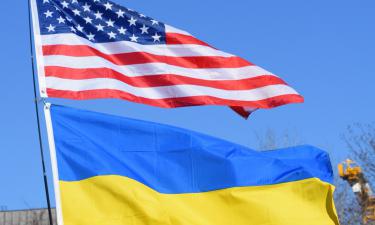UKRAINE LOVES GENERAL SECRETARY BREZHNEV MOST OF ALL, from our correspondent Aleksandr Gorobets
“Today is Leonid Ilyich’s birthday,” said the posters displayed by a handful of various-age people demonstrating yesterday in Kiev, Ukraine’s capital city. Women carried pictures of the former secretary general of the Communist Party of the Soviet Union amply decorated with the variety of orders. Surely, it was December 19th, the birthday of our unforgettable leader. Later, local news agencies reported that, according to an opinion poll conducted in Simferopol, common people had lived best of all at the time of Mr. Brezhnev’s rule – that proved to be the opinion of the majority of those polled in the capital of the Crimean autonomy. 43% of the respondents spoke in favour of Mr. Brezhnev. Yuri Andropov proved to be the second popular leader gaining 11% of the respondents’ approval. Following the two, in decreasing order, were Nikita Khrushchev (9%), emperor Nicolas II (8%), Josef Stalin (4%), Ukrainian incumbent president Leonid Kuchma (3%), and latest Soviet leader Mikhail Gorbachev (2%). Ukrainian first president Leonid Kravchuk and last but one Soviet leader Konstantin Chernenko scored 1% each. 16% of those polled proved undecided. Incidentally, a similar survey was conducted there 6 years ago. Then, again, Crimean capital’s residents showed their preference for Leonid Brezhnev. It is worth to remember that this leader run the USSR and its Communist Party in 1964-1982. He got keen on politics at the time of the Great Patriotic War (World War II) when he was Soviet Army’s colonel. After the victory, in 1945, he was sent to perform party work in Ukraine’s cities Zaporozhye and Dneproptrovsk, then in Moldavia. When in Moldavia, he was noticed by Stalin who allegedly said: “What an interesting Moldavian.” Brezhnev’s career went steeply up. He became the Communist Party’s Central Committee secretary and Kazakhstan’s leader. In 1963, Mr. Brezhnev masterminded a plot against Nikita Khrushchev. After Mr. Khrushchev’s dismissal, Mr. Brezhnev consolidated power becoming Central Committee’s first secretary, then, the general secretary. The Brezhnev era was marked by overall stagnation perceived by many as stability.
Subscribe to Pravda.Ru Telegram channel, Facebook, RSS!





